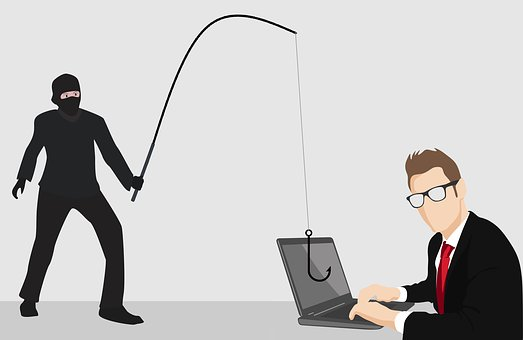It’s more important than ever before to know how to watch out for scam artists when you shop online, use your email, or do just about anything online that involves giving out personal/financial information or even just clicking a link.
It would be nice if scam artists helpfully put up “scam alert warning signs” or always acted in exactly the same way so we’d always recognized them. But instead, they use stealth and deception to throw you off guard, so you have to develop a set of anti-scam tips protocols to follow at all times.
Here are some of the most effective ways to guard yourself against identity theft and financial loss due to falling prey to a scam artist’s scheme:
1. Avoid Suspicious Websites
One major way scammers operate is by creating fake websites that mimic real ones or that at least “look real.” They may even closely imitate logos, fonts, colors, and more from the actual website.
Here are three ways to sort out the real from the fake: look for the https:// and green lock in URL bar to verify it’s a secure connection, investigate contact information and physical addresses given, and double check (elsewhere online, such as at Wikipedia) that you are using the correct web address for the desired company. Also double check you didn’t misspell the URL!
2. Be Careful What You Click
Never open links or attachments in unsolicited emails. They are frequently scammer traps that either ask you for money or financial information OR that unleash deadly viruses into your computer that can both debilitate it and steal your personal information out of it.
Understand that spammers can get your email from a variety of sources even if you’ve never done business with them, and they can also use “super bots” to rapidly create immense numbers of “possible email addresses” and then send out spam to those addresses that happened to be “hits.” Don’t click on anything unless you’re 100% sure it’s safe.
3. Use Familiar Payment Methods
It’s always better to use familiar payment methods, like Paypal, debit cards, or credit cards. Don’t let a potential scam artist convince you to send a wire transfer instead, or maybe a gift card or prepaid card.
All of the alternate payment methods mentioned above are “untraceable,” which is why scammers want you to use them. Scammers want to lower their chances of getting caught to virtually zero, and switching to non-traditional payment methods is one way they accomplish that.
4. Be Protective of Personal Information
Don’t give out your date of birth, social security number, physical address (especially if it’s also your billing address), bank account numbers, credit/debit card information, and other personal/financial data easily. Be protective of it.
If “loose lips sink ships,” then loose fingers on the keyboard can sink financial ships too. Scammers are constantly out “working” online dating sites, social media sites, and fake websites to find a new victim.
Never give out personal information to a person or website you did not seek out or that seems suspicious. And use the privacy settings on Facebook, Skype, and other sites to minimize the ability of scammers to even contact you to begin with.
5. Never Cave to High-pressure Tactics
Finally, realize that most scam artists won’t want to spend a lot of time haggling with each “prospect.” To be successful, they have to play the numbers, which means using high-pressure sales tactics to save time.
Don’t give in to “limited time offers” that expire almost immediately, claims that the product is scarce and you need to act fast to buy “the last one.” Don’t let scammers deny you the time to think things through and, perhaps, discuss an offer with a friend or family member first.
In today’s world, few can afford to avoid using the Internet for business and personal purposes almost every day. Online scam artists abound. But follow these 5 tips, and you’re off to a good start in minimizing the chances of becoming one of their victims.






